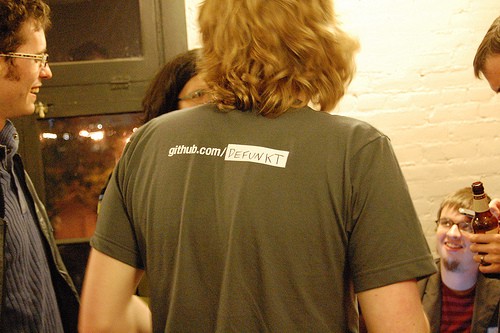Anil Dash retweeted this question from Raymahl Sutton, CEO and founder of BlindedHR last week:
For those with experience with SAAS, and fremium models, is it best to offer a basic product for free when you’re starting out?
I wanted to expand on my reply a bit, because this topic of freemium business models has come up a few times with our clients.
“Freemium was great for X!”
A free plan was instrumental for us at New Relic. Application Performance Monitoring was a pretty new concept to most Rubyists in 2008, and a free plan meant we could show, not tell, how great the product was. The free plan was perfect for side projects that you’d run on a single server or Heroku dyno.
The free plan was almost full-featured but the gating factor was time - you could only see data for a short period of time in a free plan. If you really cared about an app, you’d want longer periods of data to analyze, so you’d upgrade. Historical data was retained so when users upgraded they would see their historical data too, so the upgrade experience was really nice.
A freemium model worked for New Relic because they needed to educate the Ruby community about the value of APM.

A free plan was also instrumental for us at GitHub. GitHub is a viral product — every user of GitHub makes the platform more valuable for everyone else. Remember the original GitHub t-shirts? You filled in your username, marking your place on the biggest software platform in the world (19M+ and counting).
A freemium model worked for GitHub because ‘free’ is crucial in building a platform with a strong network effect.
Freemium isn’t for everyone, though
Will a freemium business model work for you? Maybe. Is it essential for you? Possibly! But don’t rush out and give your product away for free.
I suggested to Raymahl that he should consider offering a free trial, not a free tier, for BlindedHR. The buyer of a product like BlindedHR is a hiring manager and/or an HR leader who is looking for an applicant tracking system. Managing the hiring process of even a small team is cumbersome so everyone needs a system like this and they all cost money. There’s no real reason to give anyone an option to not pay you money in this scenario. However, because everyone re-invents the wheel with hiring practices, they’ll try out a bunch of different services to see which one works best for them. A free trial has a few advantages here:
-
Prospective customers can try the product for free to determine if it works for them
-
It’s cheap and easy for BlindedHR to facilitate customer trials — its extremely cheap to manage and host those free accounts and doesn’t require anyone in sales to facilitate the trial
-
The free trial is good for a limited time which provides a forcing function in the sales process — if they don’t decide to buy it, they lose access. (You can always extend trials for engaged customers that need more time)
For a SaaS-based product in a well understood category, a freemium model is not optimal for driving revenue.
Does your product offer a free tier? What gating factors do you use to differentiate pricing tiers? What risks would you experience if you dropped the free tier? Leave comments below, we’d love to keep the conversation going.
